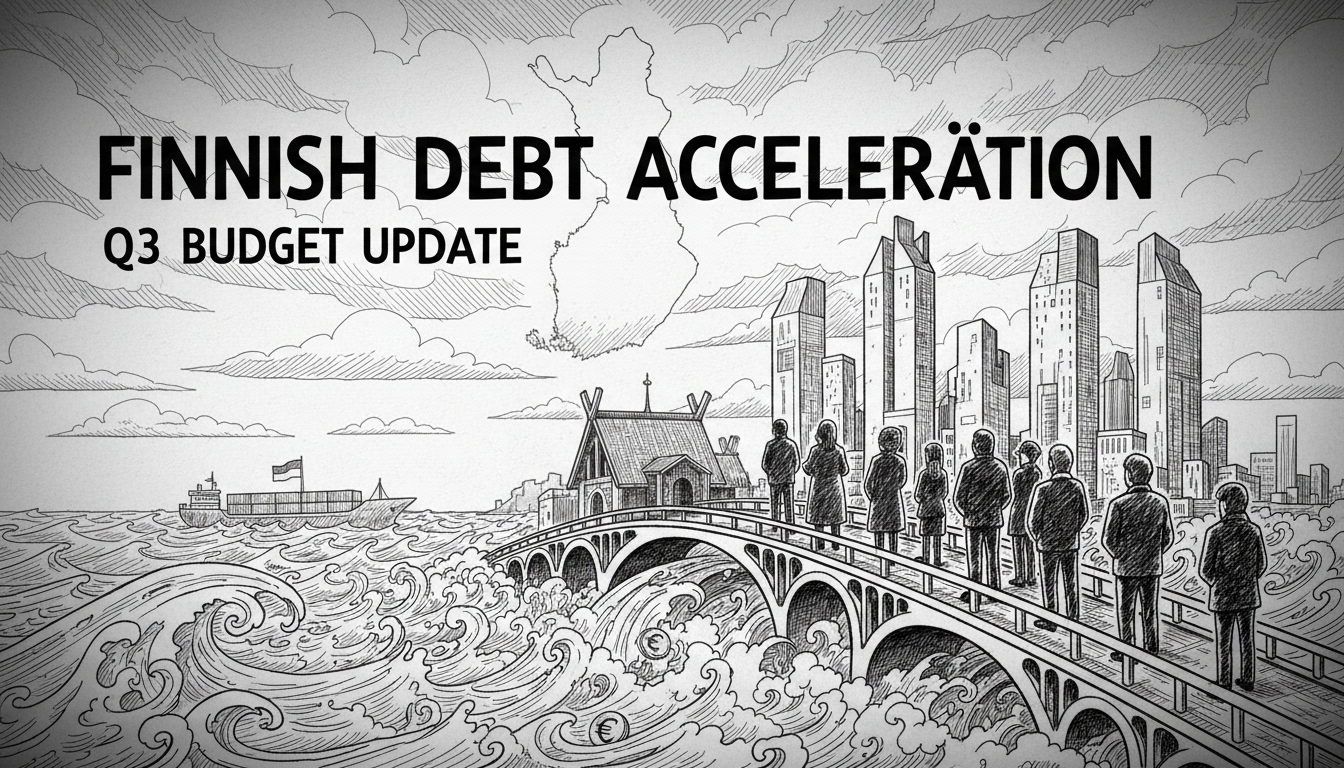Finland's government has submitted a supplementary budget proposal that increases state borrowing by €644 million. The move raises next year's net loan intake to €9.30 billion, up from the €8.66 billion projected in September's budget proposal. Finance Minister Riikka Purra presented the updated figures to parliament on Thursday.
The deficit has grown by approximately €1.5 billion over the past four months. Without accounting for a one-time transfer from the State Housing Fund, the actual budget deficit would reach about €11.64 billion next year. This substantial increase comes despite earlier government promises of fiscal restraint.
Government officials cite several factors behind the revised numbers. Tax revenue estimates have dropped by €189 million since autumn forecasts. The government proposes reducing tax revenue projections by €25 million, partly due to delaying the implementation of a soft drink tax increase from January 2026 to April 2026. This delay will reduce 2026 tax revenues by €28 million.
Miscellaneous income projections face a €164 million reduction. The decrease stems mainly from lower-than-expected emissions allowance auction revenues and reduced repayments from the European Peace Facility. Meanwhile, tax-related interest income estimates show a €51 million increase.
The supplementary budget includes approximately €303 million in new investment program authorizations and appropriations. About €98 million of this amount targets 2026 projects. Major infrastructure initiatives receiving funding include the Liminka-Oulu double track project with €199 million in authorization and €10 million in appropriations.
Other transportation projects gaining support include improvements to Highway 4 at Vestonmäki, the Kupittaa deck project, planning for Highway 152 connecting Hämeenlinnantie and Tuusulantie, and the Kantatie 51 Vuohimäki interchange. The government also plans to incorporate artificial intelligence and digitalization investments to improve public administration productivity.
International commitments feature prominently in the budget update. Finland proposes €100 million for NATO's Prioritized Ukraine Requirements List to fund defense material purchases from the United States. An additional €5 million would support civilian aid and transportation costs for Ukraine.
Transport infrastructure receives substantial attention with €109 million authorization and €22 million appropriation for the first phase of Highway 9 between Tampere and Orivesi. Other transportation allocations include €10.6 million for a new icebreaker, €8.9 million for aviation service purchases, and €7 million for Lentorata Oy and Itärata Oy project planning.
The budget also supports new passenger train services between Tornio and Haparanda with €1.9 million and between Helsinki and Hanko with €0.8 million. These additions would be implemented through transfers from basic transport maintenance appropriations.
This budget revision demonstrates the challenges facing Finland's coalition government in balancing fiscal responsibility with necessary investments. The increasing debt levels raise questions about long-term economic sustainability while the government attempts to stimulate growth through strategic infrastructure spending. The supplementary proposal now moves to parliamentary review where it will face scrutiny from opposition parties concerned about the growing deficit.

